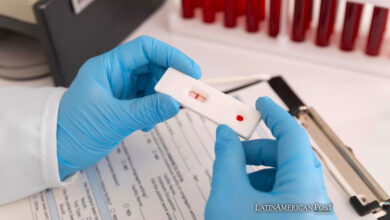The Keto Diet Could Cause Increased Cardiovascular Risk
The keto diet, so popular in recent years, could cause more harm than you think. A recent investigation relates it to increased cardiovascular risk.

Photo: Freepik
LatinAmerican Post | María Fernanda Ramírez Ramos
Listen to this article
Leer en español: La dieta Keto podría causar mayor riesgo cardiovascular
The keto diet, also known as the ketogenic diet, is a low-carb, high-fat eating plan that has become popular in recent years. The main goal of the keto diet is to get the body into a state called ketosis, where it burns stored fat for energy. For this reason, it is a method that has been used to lose weight. Although it is true that it has multiple health benefits and that it has helped in the treatment of certain diseases, several problems have also been discovered with its use.
On the keto diet, carbohydrate intake is limited to approximately 20–50 grams per day. For this reason, carbohydrate-rich foods such as bread, cereals, fruits, and sweets are avoided, but many vegetables are also restricted. Instead, high-fat foods are consumed, such as meat, fish, eggs, avocado, nuts, and seeds. Depending on the approach, dairy products such as cheeses or Greek yogurt are also included.
The Keto diet could be a risk for the heart, according to a new study
At this year's World Congress of Cardiology, a research group presented a study that found that a high-fat, low-carb diet (such as Keto) may be associated with higher levels of "bad" cholesterol and twice as much risk of cardiovascular events. It also claims that it can cause chest pain, blocked arteries that require stenting, heart attacks and strokes.
"Our findings suggest that people considering following a low-carbohydrate diet should be aware that doing so could lead to an increase in their LDL cholesterol levels. Before initiating this dietary pattern, they should consult a health care provider. While on a diet, it is recommended that they control their cholesterol levels and try to address other risk factors for heart disease or stroke, such as diabetes, high blood pressure, physical inactivity and smoking," said Dr. Iulia Iatan, main author, in an article from the University of British Columbia.
The researchers also noted that further studies are needed, as some patients kept their cholesterol the same or lowered it. In other words, there is not necessarily a causal relationship, although there is a risk.
We recommend you read: A Burning Topic: What are the Risks and Benefits of Spicy Food?
Other risks of the ketogenic diet
The keto diet is not for everyone and should not be taken lightly. It can be difficult to follow long term. Also, in the short term it can cause side effects such as fatigue, dizziness, constipation and bad breath. In fact, a study published in the journal Nutrients in 2017 found that 65% of participants following the keto diet experienced at least one side effect. Also, it is not recommended for people with specific conditions, such as diseases of the liver or pancreas. For this reason, it's important to speak with a health professional before starting any diet, especially if you have underlying health conditions or are taking medication.
The problem also lies in the fact that many people misinterpret this type of diet in an effort to lose weight quickly. Thus, large amounts of saturated and unhealthy fats are consumed. For example, you eat an excess of fried foods, fats of animal origin or cheeses, instead of favoring the consumption of healthier fats such as those from avocados, nuts, or salmon.
Other concerns with the keto diet is that it can cause digestive problems such as abdominal pain, diarrhea, or constipation. On the other hand, there is a risk of suffering from ketoacidosis, although it is rarer, it also requires care. Ketoacidosis is a dangerous state in which the ketone levels in the body are extremely high. If left untreated, it can lead to hospitalization and even death. Although rare in healthy people, people with type 1 diabetes are at higher risk of developing ketoacidosis when on the keto diet. A study published in the journal Diabetes Care in 2018 found that 1.4% of participants with type 1 diabetes who followed the keto diet developed ketoacidosis.
It is important to note that these risks do not apply to everyone on the keto diet and that the effects may vary from person to person. However, it is recommended to speak with a health professional before starting any diet and carefully monitor the effects on the body.
A Matter of Balance: Benefits of the Keto Diet
The keto diet became popular because it was found to help treat epilepsy, especially in children who did not respond to conventional treatments. The reason is that ketones are thought to help reduce hyperexcitable neural activity that can cause seizures.
By being in ketosis, other health benefits can be experienced, such as weight loss, improved insulin resistance, and reduced inflammation. For its part, reducing inflammation helps prevent or improve symptoms of chronic diseases such as arthritis, heart disease and Alzheimer's disease. Also, people who practice it often say they have more energy.




